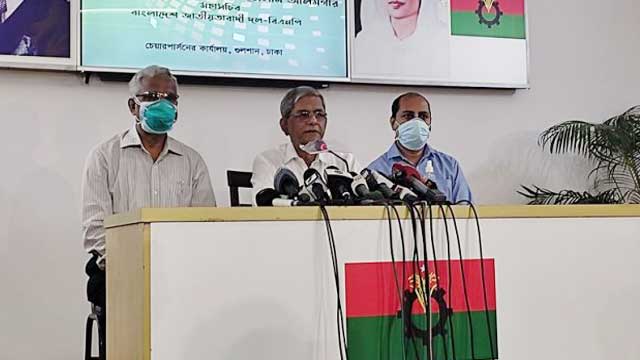Opposition Bangladesh Nationalist Party chairperson Begum Khaleda Zia on Monday underwent a biopsy, a minor surgery, as a lump was found in her body in a hospital in Dhaka.
Former prime minister Khaleda Zia was taken to the surgical intensive care unit after the surgery, her personal physician Professor AZM Zahid Hossain said.
‘She is not totally out of danger. But every parameter of her health is now stable. A long-term treatment has been started through the biopsy,’ Zahid said at a press conference at the BNP chairperson’s Gulshan office.
He said that around 15-21 days might be needed to get the biopsy test report.
Zahid said that after the surgery, 76-year-old Khaleda talked with her son Tarique Rahman, brother Shamim Iskander and youngest son Arafat Rahman’s widow Syeda Sharmila Rahman.
Zahid said that Khaleda needed treatment in a dedicated advanced medical centre which was not available in the country.
BNP secretary general Mirza Fakhrul Islam Alamgir said that Khaleda was still in jail while the government had refused requests of the party and her family to allow her to go abroad for treatment.
Fakhrul said that the government should immediately allow her to take treatment abroad.
On October 12, Khaleda was admitted to Evercare Hospital in Dhaka again as she had been suffering from fever for a few days.
She was earlier admitted to the hospital on April 27 after she had tested positive for Covid-19 on April 10.
She tested negative for Covid-19 on May 8.
Khaleda was released from the hospital on June 19 after she had taken treatment for post-Covid complications and some other underlying health problems.
She was released from Bangabandhu Sheikh Mujib Medical University’s prison cell on March 25, 2020, initially for six months, on an executive order, suspending her sentence in two graft cases amid the Covid outbreak.
The government set a condition that she would take medical treatment at home and would not leave the country.
Her family applied to the government twice in May and August, seeking permission to take her abroad for better treatment but the government turned it down, saying that there is no scope for a convicted person to avail such a scope.
According to her family and doctors, alongside post-Covid complications, Khaleda is also suffering from severe and uncontrolled rheumatoid arthritis, diabetes mellitus, hypertension, cough-variant asthma and an autoimmune disorder that damages moisture-producing glands making it difficult to produce saliva and tears.





